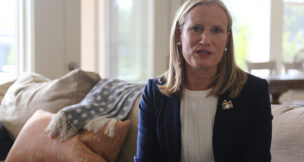Clean Elections: A fair shake?
Griselda Nevarez//November 1, 2010//[read_meter]
Arizona’s Clean Elections system has had a polarizing effect on Arizona politics since becoming law in 1998. Supporters claim it eliminates the influence of special-interest money in elections, while opponents...











